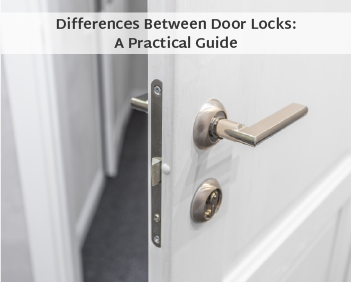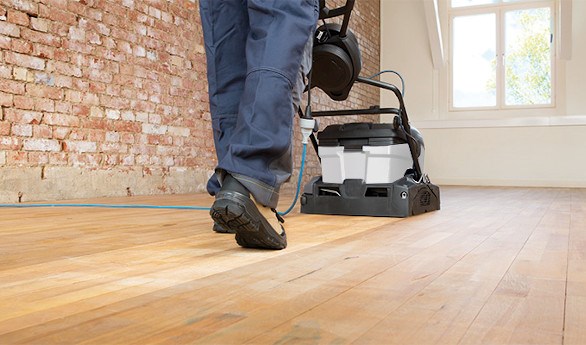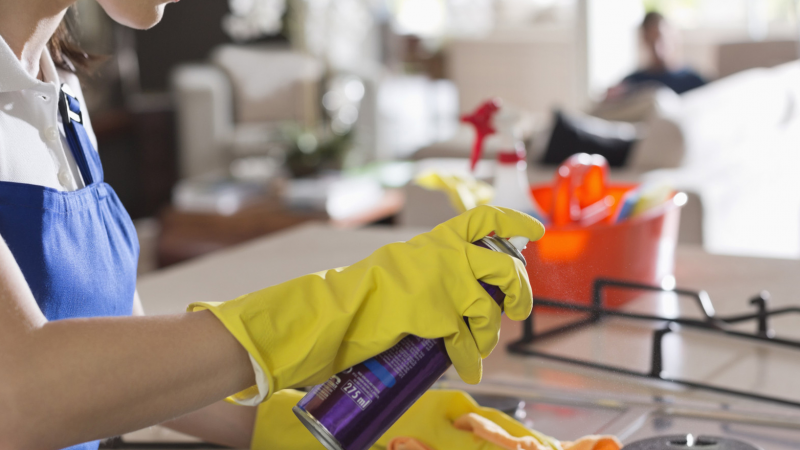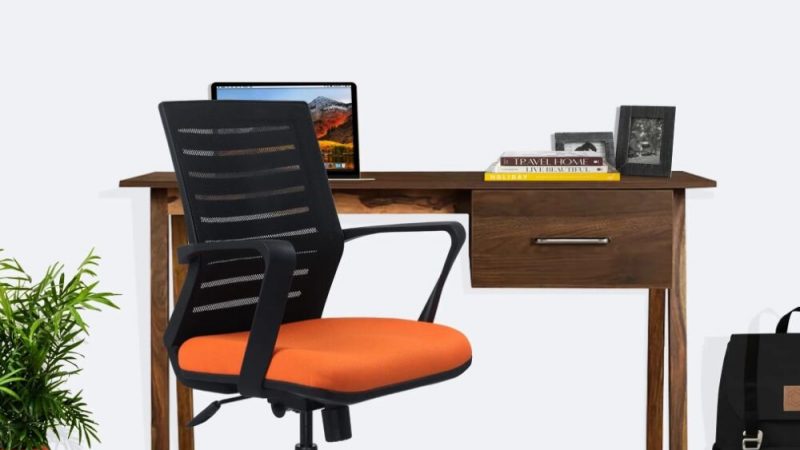Defining the Differences Between Door Locks: A Practical Guide

Door locks are a simple and easy way to keep your home safe from unwanted intruders. But with so many different types of locks, such as smart deadlocks, normal door locks, etc., on the market, it can be difficult to know which one is best for you and your situation.
So we put together this practical guide that will help you identify what kind of door lock is right for you. We hope this blog post helps you make an informed decision about whether or not installing new door locks in your home makes sense for the safety of yourself and those around you.
Security Comes First
Locking your doors is a really important part of being safe. A home without strong security systems can’t be considered “safe” to live in, and even if you’re away from the house while sleeping or relaxing outside, French doors it’s nice knowing that nobody will bother us because they’ll think we don’t have anything worth taking.
“Key the mind, and set the soul free.” ― Anthony Liccione.
Locking your door at night makes you safer and an intruder less likely to enter. Whether considering leaving it open or weighing the options, we highly recommend using locks no matter where one lives.
Now, let’s move to our core topic that builds the borderline between the different types of locks.
Smart Deadlocks
Any lock that can be automated by the gadgets such as mobile phones, tablets, or laptop becomes smart. So, first, we need to understand what deadlocks are? If we understand them properly, there will be nothing complicated to understand what smart deadlocks are?
A deadlock is a lock that can only be unlocked with a key when in “deadlocked” mode. There’s an operable turnable knob on one side and the other -another Keyhole.
The idea behind this design feature is for increased security, preventing thieves who gain entry via window from escaping through the door during emergencies such as fires by leaving them at home if you have no access to your keys. They seem awesome, but make sure not to leave home without remembering the extra set.
Pros
- You can control them through your smart gadgets such as mobile phones, tablets, or laptops. They also have their applications.
- The deadlock method is a great choice for processes that have one very intensive burst of activity, and then they’re done.
- The no-compute theorem has been a long-standing theory that must be proven or debunked. If it is true, solving these problems will become easier in system design.
Cons
- Deadlocks are used to prevent incremental resource requests.
- The inherent preemption feature can wreak havoc on efficiency as workers.
- Processes are slow.
Deadlatches
The deadlatch is a revolutionary new product that has been compared to the modern-day “keyless” entry system. It allows you to lock your door automatically when it’s closed and unlocks itself anytime someone knocks on wood.
This handy device makes leaving quicker than ever before while still giving me peace of mind knowing every time we leave something behind at home isn’t done without protection from harm or theft – guaranteed safe as soon as our backs hit those cold metal doorknobs outside.
Pros
- The design of the handle enables it to extend farther into door frames without any alterations in its strength.
- They are easy to use, install, and lock automatically.
Cons
- It will require an additional lock that should be fitted to your door for security purposes.
- The deadlatches dimensions should be appropriate; otherwise, they create issues in locking.
Normal Locks
As a homeowner, you no doubt understand the importance of door locks. Your family and belongings are safe with these essential home fixtures that keep intruders out as well! What type should it be for your house?
Well, there’s more than one kind at hand so let’s look into each option available before making up the mind about which will work best on our property.
1. Padlocks
Padlocks are a type of portable, often temporary lock. They come in two main categories: keyed and combination locks; each with different subtypes like key alike or differently configured keys that can open certain types only – which makes them great for home emergencies when you need quick access to your essentials but not the time it takes find another way inside.
2. Knob Locks
Knob locks are easy to install; just replace your old deadbolt with one that has a knob. They’re also more secure than traditional doorknobs because they can’t be easily picked or breached by thieves who may have basic tools like hammers and wrenches at their disposal.
3. Mortise Locks
Mortise locks are powerful exterior door fixtures that can hold several keys. Light or heavy-duty models of the lockets are available in either knob and lever versions, with both styles having a cylindrical body for added strength if needed; there’s also an internal system, so it’s more like a set screw to secure them against unwanted intrusion from outside–no pesky cylinder hinges required.
Conclusion
Regardless of the type of door you have, it is important to ensure that your locks are up-to-date. Whether you need a deadbolt or smart deadlock, our team can help by providing information on how they work and which one would be best for your home. What kind of locking mechanism do you use?




